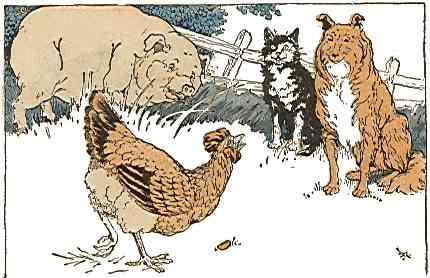Google Books sued by a pig, cat and dog


Now Microsoft, Amazon, and Yahoo think they each deserve a big slice of bread. They are taking the hen to court in order to get it.
The effort, led by attorney Gary Reback, to challenge Google's deals with writers and publishers for digitizing "orphaned works" that are copyrighted but no longer published is less lawsuit than business by another name.
The aim here is not to help writers make money. Once a work is online it's as available as it's ever going to get. The idea is to get Google's rivals a cut of the deal.
The three say they're standing behind the Internet Archive, which also wants Google's deal without paying for it. (The Archive in this case is played by a duck.) And in theory there is no reason an easy settlement can't be reached. With five companies involved each firm's piece of the costs is a lot less than it was with just Google fronting things.
Something tells me, however, that's not going to happen. The Archive's claim is based on the fact that Google has the money to pay for digitizing (about $1 per book), it does not, but it should have the same rights to the result. That's silly.
So is the Open Content Alliance's claim that Google is trying to create a "monopoly" and "rewrite the copyright law." We are talking here about solving a problem created by long-lived corporate copyright, the fact that books now become economically worthless long before they become legally available.
Google's solution is pretty elegant. It's free money to authors, or those to whom they have assigned copyright, and the greatest freedom possible for readers given the stupid requirements of that law.
Are authors going to get a better deal from the lawyers for Duck, Pig, Cat and Dog? Is such a deal being offered? If there is I'm all ears. But if not why should I, as an author, care except for the fact this stalls the deal and perhaps means there's no deal at all?